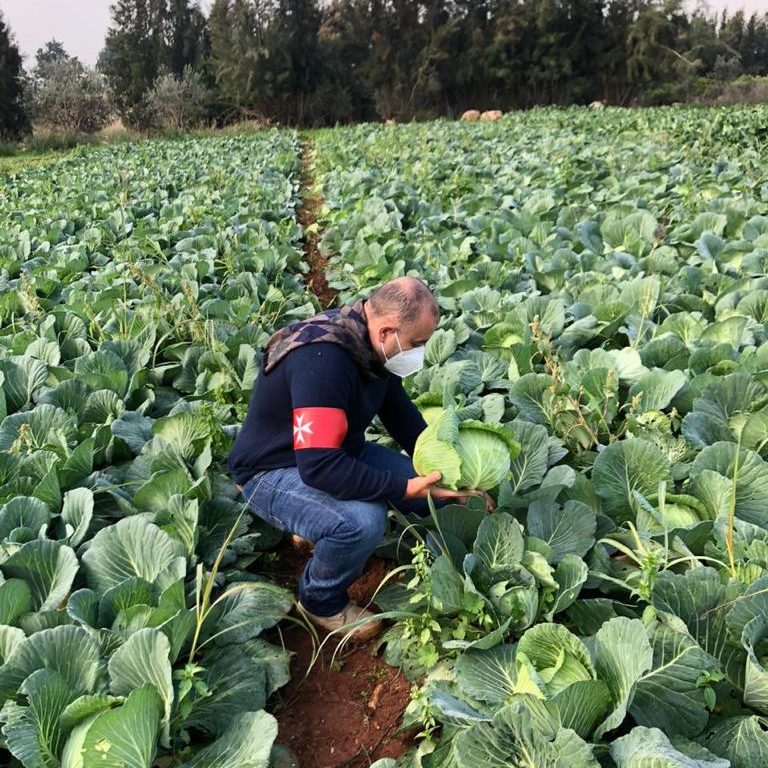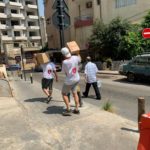Striving to contribute to Lebanon’s community health by supporting small scale farmers to maintain production and improve their resilience, we launched the next phase of our agro-humanitarian project “Healthy We Grow”, funded by the German Federal Ministry for Economic Cooperation and Development (BMZ) with the support of Malteser International. The project aims to provide vulnerable farmers with natural, human, and physical assets (seeds, seedlings, irrigation systems, organic matter, and training) to pursue their farming activities. Access of small farmers to basic agriculture assets became extremely difficult due to the multi-dimensional crises that hit Lebanon since Oct 2019. The overall objective of the project is to increase food availability and accessibility by strengthening domestic production and creating jobs in the agriculture sector.
The project’s field implementation is lead in partnership with Fondation Saradar. The team will conduct outreach activities to selected 900 vulnerable farmers living in underprivileged communities in the catchment areas of our Community Health Centers – Barqa (Ras Baalbek), Khaldiye (Zgharta), Kobayat (Akkar, Denniyeh), Kefraya (Western Bekaa) and Yaroun (Southern border).
The selection criteria are based on the economic, health, food and nutrition vulnerabilities for each farmer’s household. The 900 farmers will benefit from around 3.2 million seedlings, irrigation systems, and organic matter to achieve a good production. Farmers will be supported to plant foods with high nutritive value and demand at the market level which include tomato, pepper, cucumber, cabbage, cauliflower, as well as, broccoli, potatoes and beans. All farmers will receive tailored technical assistance in the form of field visits. Moreover, the project empowers every enrolled farmer and producer by enabling them to play an active role in their community beyond the mere agriculture and production part. In this vein, each beneficiary donates 5% of their agricultural production to be distributed among the underprivileged individuals who benefit from the health services provided by our centers.
Food prices increased by more than 150% in 2020 in Lebanon and expenditure on food reached more than 85% of total household expenditures for the most vulnerable. With the ongoing financial and political crises and the potential removal of subsidies on basic food items, strengthening food security by improving food availability is a context-based solution to increase communities’ resilience and prevent a food crisis. Food utilization and availability are two of the pillars upon which healthy communities are built, this project will complement the tireless efforts of our health centers.





